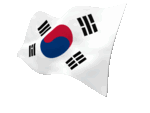On Person's Names
페이지 정보
본문

Lee Chang-rae is a very successful and promising Korean-born American novelist living in the United States. His first novel in 1995, Native Speaker, was more than a good start. Besides heaps of critical success it brought him many honors: the Hemingway Foundation/PEN Award, the Quality Paperback Book Club's New Voices Award, the Oregon Book Award, the Barnes and Noble Discover New Writers Award. With his recent second novel, A Gesture Life, he was selected as one of the 20 best American writers under the age of 40 by The New Yorker, a very influential literary magazine in the United States.
When I came across his name for the first time in the major daily newspapers in Korean, and in The New York Times Book Review, and in the Newsweek, I was immensely intrigued by the similarity of his name with mine. Most Koreans would or could think we were brothers or something. Truly one of my colleagues dropped in my office one day to verify or confirm the truth or the possibility of the truth. Without hesitation I told him that he was my youngest brother, with my tongue in my cheek. To my great amusement, this simple man seemed convinced.
Why not. There are several reasons for him to believe my blatant lie. Apart from the close resemblance of the names between us, we have a lot in common with each other. He writes novels in English. I write essays in English. He is a professor of Creative Writing at the Hunter College, City University of New York. I am also a professor of Engliah at Chung-Ang University in Seoul, and I too teach Advanced English Composition every other semester. He graduated from Yale University with a major in English. I graduated Seoul National University with a major in English. He has published two novels. One of my first collection of essays are due to be published in England by Minerva Press within this year. Strictly speaking, both of us are not native speakers of English, but we live on it.
The impudent lie and the willful and egregious comparisons I made above were caused, I think, by my admiration for what he has achieved with English as a Korean in the United States. For me, who is also preoccupied with writing in English, his success as a writer of novels in English is more than what Pak Seri, the first Korean woman golf champion in LPGA and Park Chan-ho, the first Korean baseball player playing in the Major League, have done respectively for the Korean fans and players at home and abroad. Lee Chang-rae is my hope, my hero, my model, and my dream.
Just a dream. I know too well that it is only a sad dream for me to be like him. He has already gone too far ahead of me. He is beyond my reach. I despair before him. He has already everything a writer ought to have: talent, recognition, fame, publisher, and readers, - all these at 33. Me? At 60 no recognition, no readers, no publisher, not an award. Except the striking resemblance of the names between his and mine, there is virtually nothing that connects him with me.
Judging by his name only he is definitely a Korean as Lee Chang-kook is, but in fact he is no more a Korean than I am an American. Although he was born in Seoul between Korean parents, he grew up in the United States from when he was 3 years old, during which time he went through kindergarten to college in the United States. He marred an American woman, has a 2-year-old daughter between them, and now lives in New Jersey. He has become a native speaker of English himself. Everything about him bespeaks eloquently America or American, except for his name.
I wonder how and why he has retained his Korean name so far. Lee Chang-rae is quite a common and familiar Korean name. It is easy to call and we feel at home with it. But it is too Korean to be used in the American society. For Americans it would not be easy to write and pronounce, and may sound funny or awkward to some American ears. M brief experience and short sojourn in the United States tell me it is not easy for the Korean immigrants to keep their original names. The first cultural problem they confront, among many, in the new land is with their Korean names. They realize anew the importance of the name in their daily life, and find theirs suddenly very cumbersome to use. They would be well advised to adopt an American name, such as John Lee, Henry Park, or Richard Kim. But strangely enough, Lee Chang-rae kept his name even as a writer. Writers like to have a pen name, even though they have their original American names.
This seemingly simple and trifling fact about Lee Chang-rae is, I think, very important, all the more important, because he is a writer. For a man who aspires to become an artist, a writer, there is one more very important as well as indispensable element required for the job in addition to intelligence, talent, devotion, and endeavor. That is a strong sense of identity. Without this he can become a businessman, a lawyer, or a medical doctor, but seldom an artist.
To be an artist menas to be a man who knows who he is and where he stands more clearly and alertly than ordinary people. In order to be so he should always keep some distance from the objects he depicts or describes. He should be an perpetual outsider, a critic, an observer. He should not succumb to the established system of value, opinion, and judgement. He should be born with a peculiar propensity or ability or gut to be independent, proud of being himself, of being odd, and different from others.
Lee Chang-rae or his parents could have changed his name to something that sounded a bit more American or Western, but somehow, for unknown reasons, he managed to keep his original name and came out to the world with it. Something in him and in his parents refused to give in or give up easily. He refused to join the mainstream of the American society and decided to stay where he is with what he is. If he had changed his name to please everybody around him, he would have become anybody he wanted to be, but he would not be the author of Native Speaker and A Gesture Life. Mr. Lee Chang-rae owes much what he is to his name.
(November 5, 1999)
- 이전글I Confess 21.01.13
- 다음글On The Death Of A Famous Young Man 21.01.13
댓글목록
등록된 댓글이 없습니다.








